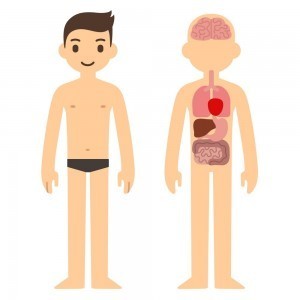How Food Allergies Affect Brain & Body Health
 ‘Brain fog’, aching muscles, inflamed and stiff joints are all symptoms that many of us experience. Most of us put these symptoms down to getting older; some worry that they may be developing a serious medical problem such as Alzheimer’s – but few of us consider that the root cause of our problems might be an inflammatory reaction to something in our diet!
‘Brain fog’, aching muscles, inflamed and stiff joints are all symptoms that many of us experience. Most of us put these symptoms down to getting older; some worry that they may be developing a serious medical problem such as Alzheimer’s – but few of us consider that the root cause of our problems might be an inflammatory reaction to something in our diet!
Although greater publicity in recent years on the problems of food allergy and intolerance has resulted in more people seeking food allergy treatment as a possible answer to the puzzle of their symptoms, many people suffer for many years without ever getting to the root cause of the problem. Symptoms are often misdiagnosed and unfortunately, the inflammatory cascade of changes within the body can lead to very serious medical problems.
Inflammation can wreak havoc on the body. For example, brain inflammation is widely regarded as a major component in some cases of brain fog, headache, depression and some forms of mental illness as well as Alzheimer’s disease. Inflammation within the body can also have serious consequences, as in the case of inflammatory arthritis conditions, (including rheumatoid arthritis, ankylosing spondylitis and psoriatic arthritis), that all develop and progress when the body’s defense system (the immune system), starts attacking the body’s own tissues instead of pathogens, causing pain, joint damage and loss of mobility.
Food Allergy and Food Intolerance
Food allergy sufferers have a rapid reaction to consuming the food that causes them a problem. Reactions can range from mild to moderate or be severe and even life-threatening in the case of anaphylactic shock. The only way to avoid the symptoms is to avoid the food or foods that cause them.
Food intolerance does not cause a life-threatening, rapid reaction, but the results can be very damaging long-term if not addressed. Initial symptoms are often vague. They can include physical symptoms like digestive problems, mouth ulcers and skin conditions (such as eczema). In addition, many people often experience a range of psychological problems ranging from mild brain fog to depression and dementia-like symptoms over time.
Unfortunately, food allergies and food intolerances can both develop at any time of life. Foods that previously were not a problem may suddenly begin to cause major issues. A good example of this is gluten that can cause both Coeliac disease and gluten intolerance which can be present from birth but can also be triggered any time from childhood to senior years.
What Can You Do?
The Allergy and Anaphylaxis Australia website states that overall, 2% of Australians suffer from some degree of food allergy. In children, the figure is 5% (one in twenty). Coeliac disease affects 1% of the population – however, this figure may be much higher as many more people may still be undiagnosed. Many more may be experiencing symptoms of gluten intolerance or other food intolerances and may be storing up health problems for the future because of the unknown, unseen inflammatory problems that are occurring within their bodies as a result.
For those of us feeling that our brains and/or our bodies are not functioning as well as they once did, food allergy treatment is something we should seek out. Call the practice today on either (03) 9303 9952 (Roxburgh Park) or (03) 9746 3977 (Sunbury) and arrange an appointment with Chiropractor Daniel Chatfield. He is happy to discuss the options and alternatives available to you so that you can make an informed decision on the best course of action in your case and discover whether the cause of your problems may be food related.
